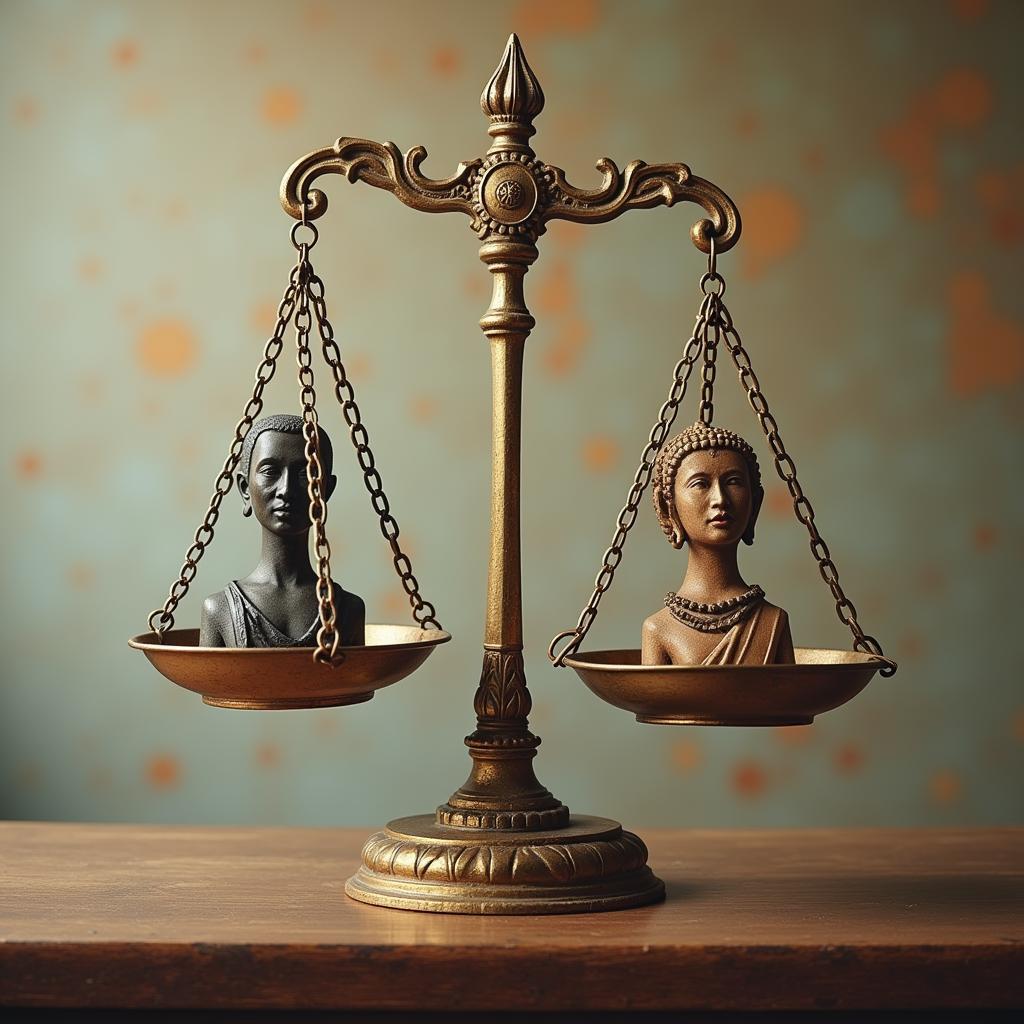Asean And Liberalism have a multifaceted and evolving relationship. The association’s commitment to principles of non-interference and consensus-based decision-making often clashes with the individual liberties and democratic ideals central to liberal thought. This article explores the intricate dynamics between ASEAN and liberalism, examining the challenges and opportunities that arise from their interaction.
Navigating the Crossroads: ASEAN’s Core Principles and Liberal Values
ASEAN’s foundational principle of non-interference in the internal affairs of member states presents a significant hurdle for the promotion of liberal values within the region. While this principle has been instrumental in maintaining regional stability and preventing conflict, it also creates a shield for authoritarian regimes, limiting the scope for external pressure on issues like human rights and democratic reforms. This often leads to a tension between ASEAN’s prioritization of state sovereignty and the liberal emphasis on universal human rights.
The consensus-based decision-making process within ASEAN further complicates the integration of liberal principles. Requiring unanimous agreement among member states often results in watered-down resolutions and a reluctance to address sensitive issues that could potentially fracture the bloc. This can impede progress on areas such as freedom of expression and assembly, where differing levels of commitment to liberal values among member states create obstacles to collective action.
 ASEAN and Liberalism Challenges
ASEAN and Liberalism Challenges
Economic Liberalization vs. Political Liberalization: A Dichotomy in ASEAN
ASEAN has embraced economic liberalization with considerable enthusiasm, fostering regional integration through free trade agreements and the creation of a single market. However, this economic openness has not always translated into a parallel embrace of political liberalization. Some member states have maintained restrictive political systems despite their active participation in the regional economy. This creates a complex dynamic where the free flow of goods and capital coexists with limitations on political freedoms and civil liberties. The question remains whether economic liberalization will eventually pave the way for greater political openness in the region.
Is Economic Growth a Catalyst for Political Change in ASEAN?
This is a question frequently debated among scholars and policymakers. While economic development can create conditions conducive to democratization, it is not a guaranteed pathway.
The Role of Civil Society in Promoting Liberalism within ASEAN
Despite the challenges, civil society organizations play a crucial role in advocating for liberal values within ASEAN. These organizations work tirelessly to promote human rights, democratic reforms, and greater transparency within member states. Although their activities are often constrained by restrictive laws and limited political space, they represent a vital force for change, pushing for greater alignment between ASEAN’s practices and liberal principles.
Dr. Anya Sharma, a prominent Southeast Asian political analyst, notes, “Civil society organizations are the unsung heroes in the struggle for liberal values within ASEAN. They work tirelessly, often at great personal risk, to hold governments accountable and advocate for the rights of all citizens.”
How Can ASEAN and Liberalism Find Common Ground?
Finding common ground requires a nuanced approach. It involves fostering dialogue and encouraging member states to embrace liberal values while respecting the diversity of political systems within the region. This requires a gradual and incremental process, focusing on areas where consensus can be achieved and building trust among member states.
Professor Michael Nguyen, an expert on ASEAN affairs, states, “The key lies in finding a balance between respecting national sovereignty and promoting universal values. It requires a commitment from all stakeholders to engage in constructive dialogue and find solutions that benefit the entire region.”
 The Future of ASEAN and Liberalism
The Future of ASEAN and Liberalism
Conclusion
The relationship between ASEAN and liberalism remains complex and dynamic. While challenges persist, opportunities exist to foster greater alignment between ASEAN’s principles and liberal values. Through dialogue, engagement, and a commitment to finding common ground, ASEAN can continue to evolve and become a more inclusive and democratic region. This evolution requires a concerted effort from all stakeholders, including member states, civil society organizations, and the international community.
FAQ
-
What is ASEAN’s stance on human rights? ASEAN has a human rights declaration, but its implementation varies among member states.
-
How does ASEAN’s non-interference principle impact liberalism? It can shield authoritarian regimes from external pressure on human rights issues.
-
What role does civil society play in promoting liberalism in ASEAN? Civil society organizations advocate for human rights and democratic reforms.
-
Is economic liberalization linked to political liberalization in ASEAN? While there’s a correlation, it’s not guaranteed.
-
What are the future prospects for ASEAN and liberalism? Finding common ground through dialogue and engagement is crucial.
-
How does ASEAN’s consensus-based decision making affect its relationship with liberalism? It can hinder progress on issues where member states have differing levels of commitment to liberal values.
-
What are some examples of liberal values? Individual liberties, democratic ideals, freedom of expression, and human rights.
Need further assistance?
For any further queries or assistance regarding ASEAN and related topics, please don’t hesitate to contact us. You can reach us via:
- Phone: 0369020373
- Email: [email protected]
- Address: Thôn Ngọc Liễn, Hiệp Hòa, Bắc Giang, Việt Nam
Our customer service team is available 24/7 to assist you. We also encourage you to explore other related articles on our website for more in-depth information on ASEAN, liberalism, and other relevant topics.